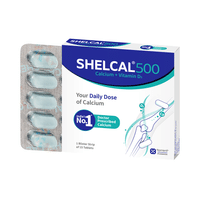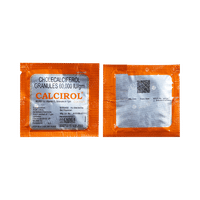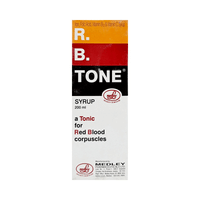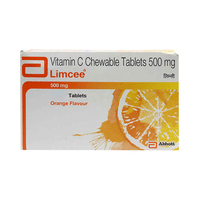Rs.212.81for 1 strip(s) (10 tablets each)
food interaction for Forpcos
alcohol interaction for Forpcos
pregnancy interaction for Forpcos
lactation interaction for Forpcos
food
alcohol
pregnancy
lactation
Forpcos Tablet may be taken with or without food.
None
None
CAUTION
It is not known whether it is safe to consume alcohol with Forpcos Tablet. Please consult your doctor.
CONSULT YOUR DOCTOR
Information regarding the use of Forpcos Tablet during pregnancy is not available. Please consult your doctor.
CONSULT YOUR DOCTOR
Information regarding the use of Forpcos Tablet during breastfeeding is not available. Please consult your doctor.
CONSULT YOUR DOCTOR
SALT INFORMATION FOR Forpcos
Myo-Inositol(1gm)
Uses
Myo-Inositol is used in nutritional deficiencies.
How it works
Inositol works by relaxing the blood vessels and improving blood flow to the legs, toes and fingers, thereby relieving pain.
Common side effects
Nausea, Paresthesia (tingling or pricking sensation), Postural hypotension (low blood pressure), Rash, Dizziness, Flushing (sense of warmth in the face, ears, neck and trunk), Generalized swelling, Headache, Vertigo, Vomiting
L-Methyl Folate(100mcg)
Uses
L-Methyl Folate is used in the treatment of nutritional deficiencies.
How it works
L-Methyl Folate provides essential nutrients.
Common side effects
Gastrointestinal discomfort, Bitter taste, Confusion, Taste change, Excitement, Hyperactivity, Impaired concentration, Impaired judgment, Irritation, Loss of appetite, Sleep disorder, Flatulence, Nausea
Vitamin D3(1000IU)
Uses
Vitamin D3 is used in the treatment of Vitamin D deficiency and osteoporosis.
How it works
Vitamin D3 is a form of vitamin D. It raises vitamin D levels in your blood. This in turn raises calcium levels in your blood by helping you absorb more calcium from food.
Common side effects
Increased calcium in urine, Loss of appetite, Increased calcium level in blood, Itching, Rash, Urticaria, Facial swelling, Genital edema, Dry skin, Nail disorder, Erythematous rash, Decreased prothrombin level in blood, Difficulty in swallowing, Weakness, Fatigue, Sleepiness, Headache, Dryness in mouth, Metallic taste, Nausea, Vomiting
SUBSTITUTES FOR Forpcos
No substitutes foundExpert advice FOR Forpcos
- Do not use inositol if you are allergic (hypersensitive) to inositol or any other ingredients in formulation
- Avoid using inositol if you recently had a heart attack or stroke, or chest pain or have been told that you have reduced blood supply to the brain
- Do not use inositol if you are pregnant or planning to become pregnant or breastfeeding
Frequently asked questions FOR Forpcos
Myo-Inositol
Q. Is inositol a vitamin/ a sugar/ a sugar alcohol?
Inositol is a cyclic sugar alcohol used to treat intermittent claudication (pain in the legs whilst walking) and Raynaud's phenomenon (pain in limbs when exposed to cold or less blood supply)
Q. Is inositol water soluble?
It is soluble in water
Q. Can I take inositol with metformin/Prozac/ Paxil/ Clomid/ Celexa (citalopram)/ Seroquel/ Xanax/ Cymbalta?
Inositol doesn't seem to produce any major interaction with the above mentioned drugs. Consult your doctor if you are taking any medications along with inositol
L-Methyl Folate
Q. What is L-Methyl Folate? What is it used for?
L-Methyl Folate contains folate which is also known as folic acid (a form of Vitamin B). This medicine is used to treat or prevent deficiency of folate in the body. Folate plays an essential role in the production of red blood cells, and its deficiency can lead to anemia.
Q. Who should not take L-Methyl Folate?
You should not use this medication if you have ever had an allergic reaction to L-Methyl Folate or any of its ingredients. Before you take this medication, tell your doctor if you have a vitamin B12 deficiency, pernicious anemia or a history of bipolar disorder (manic depression). Also, inform your doctor if you are pregnant or breastfeeding. Let your doctor know about all the other medicines you are taking because they may affect, or be affected by, this medicine.
Q. Is L-Methyl Folate effective?
L-Methyl Folate is effective if used in the dose and duration advised by your doctor. Do not stop taking it even if you see improvement in your condition. If you stop using L-Methyl Folate too early, the symptoms may return or worsen.
Vitamin D3
Q. Is it better to take Vitamin D3 at night or in the morning?
You can take Vitamin D3 at any time of the day, morning, or night. However, there is limited information available about the best time to take Vitamin D3. Take it exactly as advised by your doctor.
Q. What are the benefits of taking Vitamin D3?
Vitamin D3 is important for maintaining bone health, support the health of the immune system, brain, and nervous system. It also regulates insulin levels and is also important for a healthy heart and blood vessels.
Q. How should Vitamin D3 be taken?
Vitamin D3 should be swallowed whole with water and should not be crushed or chewed. It is advised to take it with the main meal of the day to increase its absorption.























